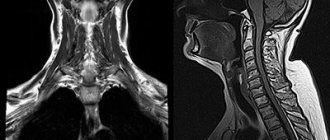Home>Useful>Alcoholic depression: how to recognize and get out of the vicious circle
quick menu (hide)
- Alcohol depression: why it develops
- Alcoholic depression and its varieties
- Consequences of severe depression after binge drinking
- Alcohol depression: causes
- Alcohol depression: symptoms and signs
- Alcoholic depression: treatment, choosing the right regimen
- How to cope with alcohol-related depression: pharmacological treatment
- How to get out of alcoholic depression: physiotherapy and psychotherapy sessions
Many people believe that alcohol can save them from depression, but this is a serious mistake. Why does the feeling of uselessness worsen after taking a large dose of alcohol? There is a belief that wine, cognac, and vodka help reduce emotionality and mental pain. We propose to understand why alcoholic depression manifests itself in a severe degree and entails a large number of troubles in all areas of life.
Content:
- General information about alcohol depression
- Why does it occur
- Time of onset of depression in alcohol addicts
- Symptoms of the disease
- Treatment 5.1. Detox for depression in addicts 5.2. Drug treatment of alcoholic depression 5.3. Psychological correction
- What can alcohol depression lead to?
Depression in alcoholism is a fairly common phenomenon.
Its duration can range from several weeks to several months. A person feels worst during abstinence days. Then the psychological state is aggravated by increasing painful symptoms. With alcoholic depression, the addict feels lonely and unwanted. Everything that happens around him seems meaningless. To avoid sad consequences, it is important to take the drinker to a consultation with a psychologist or psychotherapist. If a person does not receive psychological help, he may think about suicide.
General information about alcohol depression
Pathology was first described in his works by the Swiss psychiatrist Eugen Bleuler. Thus, in 1920 he mentioned “alcoholic melancholy.” Later, scientists conducted various studies that showed a direct link between drunkenness and depression. It was found that the likelihood of developing the disease and the severity of its course depend on the drinking experience and the doses of alcohol used.
Today it is known that people over the age of forty suffer more often from alcoholic depression. Usually these are men.
Causes
The development of psychoneurological disorders is based on the toxic effect of alcohol and its derivatives. Depressive phenomena arise due to the combined influence of the following processes:
- disturbance of metabolic and neurovegetative processes;
- decreased antitoxic and metabolic functions of the liver;
- hypovitaminosis, especially thiamine (group B);
- disruption of amino acid metabolism, in particular glutamine, leads to improper regulation of excitation processes in the central nervous system;
- electrolyte imbalance;
- gastrointestinal disorders;
- diuretic disorders;
- local circulatory disorders;
- increased vascular permeability, including for toxic compounds;
- imbalance in the functioning of neurotransmitter systems;
- the influence of concomitant somatic diseases;
- hereditary factor;
- genetic (individual) predisposition to depression, which was realized under the influence of chronic alcohol intoxication;
- the presence of concomitant mental disorders – the primary existence of a subdepressive background is possible.
Post-intoxication syndrome (hangover) is a reflection of acute psychophysical disorders that occur in the body as a result of taking large doses of alcohol. The deterioration of mental state is caused by a combination of many pathogenetic factors. Natural normalization of functions occurs within 1-6 days, which depends on individual metabolic characteristics.
It must be taken into account that the situation is worsening under the influence of social factors. Financial and economic instability, problems in the family or professional team are stress triggers that potentiate dysphoria (emotional disorders). Alcoholic drinks often only exacerbate a negative mood, contrary to common myths about the cheerful effects.
Why does it occur
The disorder is multifactorial in nature. It can occur for a number of reasons:
- metabolic disorders;
- severe ethanol intoxication;
- mental and somatic disorders;
- painful withdrawal;
- rapid personality degradation;
- inability to drink alcohol at the beginning of drug treatment for alcoholism;
- social problems caused by frequent drinking;
- binge drinking, uncontrollable craving for alcohol;
- damage to brain receptors.
Time of onset of depression in alcohol addicts
The disease can occur at different periods of life:
- At the very beginning of treatment for alcoholism. There is even such a concept - sobriety phobia. It characterizes the psychological state of a patient who has decided to radically change his life. The patient does not know what will await him next. He grieves over his inability to relax with the help of alcohol. Feels helpless. Nervous that drinking has enslaved him so much. The period of adjustment to sobriety is always difficult. It is very important that the addict has understanding relatives and an experienced psychologist next to him.
- With withdrawal syndrome. Abstinence is a sharp deterioration in well-being when you give up drinking. Usually develops after prolonged heavy drinking. The patient suffers from muscle, joint and headaches. He feels sick and vomits. I constantly want to get hungover. Due to poor health, a person suffers greatly and begins to think that his life is in vain. This is how alcoholic depression manifests itself.
- After coding. Some people become depressed before being discharged from hospital. The disorder in this case is associated with fear of the future. The coded person does not know what he will do upon returning home, with whom he will be able to communicate, or how he will restore his reputation.
- Against the background of remission. There are no former alcoholics. Psychologists often encounter a situation where a person who has observed the “law of sobriety” for many years suddenly begins to feel very unhappy. Then he wants to get drunk, but he tries to restrain himself.
It doesn’t matter at what point in the drinker’s life the depressive disorder began. The most important thing is to contact a qualified psychotherapist as soon as possible. If you don't do this, you may relapse into alcohol addiction.
Symptoms of an insidious disease
The following signs are characteristic of alcoholic depression:
- insomnia, light sleep, difficulty falling asleep, tiredness in the morning;
- decreased level of vital energy;
- increased level of anxiety;
- episodes of psychomotor overexcitement;
- severe irritability;
- lack of appetite;
- loss of sense of time;
- loss of interest in a favorite hobby;
- refusal to communicate with relatives, friends, specialists;
- inability to focus on anything;
- cognitive disorders;
- causeless change in mood;
- tendency to aggression, self-blame and self-abasement;
- detachment from the outside world;
- desire to be in constant self-isolation;
- constant thoughts about a new portion of alcohol;
- refusal to admit there is a problem;
- retardation in action.
Depressed addicts do not want to communicate with others. They often behave illogically and inconsistently. It seems that they are inventing their own world into which outsiders are not allowed.
Serious changes in mental activity often result in physiological disorders. Then there are disruptions in the functioning of the gastrointestinal tract, headaches, tremors, surges in blood pressure, swelling, redness of the skin, and discomfort in the right hypochondrium.
The patient complains specifically
about the feeling of inner emptiness, the meaninglessness of his life.
The world seems colorless and uninteresting to him. A person loses the ability to enjoy little things and cannot get pleasure from anything. At a certain point, a feeling of anxiety appears, which grows every day. Even by the appearance of the patient, one can understand that he is depressed: the gait slows down, impulsive movements disappear, the voice becomes quiet and monotonous. Severe affective disorders rarely accompany depression in alcoholism. Delusions and hallucinations usually do not develop. But there may be overvalued ideas about one’s own guilt, helplessness and uselessness. The drinker believes that his future will be very sad. Hence the thoughts of suicide.
Development of depression after binge drinking
The type of mental disorder developed by withdrawal syndrome is quite severe. It requires close attention from qualified specialists. Depression appears 3-4 days after stopping drinking alcohol. Typically, withdrawal symptoms occur in people with stages 2–3 of addiction.
Physically, this condition can be manifested by symptoms:
- tremor;
- hyperactivity of the sympathetic nervous system;
- convulsions.
The addict experiences a strong psychological crisis with a lack of positive emotions and loss of purpose in life. The world takes on dark colors, a feeling of guilt develops, a feeling of complete worthlessness and uselessness. A person repents of misdeeds committed in the past, and when thinking about the future he experiences complete despair.
Treatment
It is almost impossible to cope with depression due to alcoholism on your own. Most often, patients experience relapses. Therefore, psychologists recommend undergoing a comprehensive treatment and rehabilitation program that will prevent psychosis, neurosis, and suicide.
in a drug treatment hospital throughout the entire therapeutic course . During treatment, doctors conduct detoxification therapy, use medications, psychotherapy sessions, and various non-drug methods.
Detox for depression in addicts
If a person is admitted to a drug treatment clinic in a state of alcohol intoxication or withdrawal, therapy starts with detox procedures. They are aimed at:
- cleansing the body of alcohol and harmful toxins;
- improvement of blood composition;
- improving the functioning of internal organs;
- relieving nausea and pain symptoms.
The patient is given a cleansing drip and given saline, absorbents, and a vitamin-mineral complex. This simple and affordable detox program allows you to quickly improve your physical condition.
Drug treatment of alcoholic depression
As soon as withdrawal and acute alcohol intoxication are a thing of the past, doctors move directly to treating depression. It is based on drugs from the following pharmacological groups:
- Selective serotonin reuptake inhibitors. Third generation antidepressants indicated for anxiety disorders and depression.
- Tricyclic antidepressants. They act by increasing the levels of norepinephrine and serotonin in the brain.
- MAO inhibitors. They reduce the severity of symptoms of depression, enhance the transmission of nerve impulses, and improve cognitive function.
- Sleeping pills. They treat insomnia and make a good night's sleep.
- Anxiolytics. Relieves fear and anxiety, normalizes mental activity.
Medicines are selected for each patient on an individual basis. It is important to consider their indications and contraindications, side effects, and interactions with other drugs. An alcohol addict should not self-prescribe pills for depression - this is very dangerous.
Psychological correction
To make depression a thing of the past, psychologists and psychotherapists at the drug treatment center help the patient find a new meaning in life. They find out what led to “melancholy” and take measures to eliminate the negative influence of the provoking factor.
At the same time, the addict is taught the skills of self-control, attention switching, and relaxation. They tell him how to improve relationships with others and increase self-esteem.
Manifestations
Clinical symptoms are often moderate, and a severe course is not typical. Signs of the depressive triad are identified , including emotional, intellectual and motor depression.
The disease is manifested by a persistent decrease in mood, loss of meaning, and a feeling of internal and external emptiness. The world is losing its former colors. What previously evoked pleasant emotions now seems unimportant, unimportant. Loss of the ability to experience pleasure (anhedonia) causes sadness. Elderly patients are prone to developing anxiety disorders.
Intellectual inhibition is manifested by difficulties in learning new things and mental activity. It is difficult for the patient to understand someone else’s thought, he quickly loses the thread of someone else’s reasoning, and cannot concentrate when answering a question. He has difficulty thinking and formulating. Perception becomes superficial, memory and attention deteriorate, spontaneity of thinking is lost. Productive thoughts are replaced by endless thoughts of gloomy content .
The person’s face takes on the appearance of a “sorrowful mask . Movements slow down. The voice loses its richness of intonation and becomes monotonous. The slightest effort seems exorbitant. The patient spends a significant part of the time immobile, may refuse to eat, and remain in bed all day.
Delusional and hallucinatory disorders are usually absent. Quite typical is the appearance of overvalued ideas about one’s own inadequacy, inadequacy, guilt, uselessness and uselessness. The past is seen as wrong, the future as hopeless. Past minor offenses in the eyes of the patient “grow” into unforgivable sins. Suicidal thoughts and actions are possible.
The consequence of depression can be the rapid development of the next stage of alcoholism . Aggressive behavior, deterioration of relationships with loved ones, and severance of friendships and family ties are possible. The course of chronic somatic diseases becomes more severe. The likelihood of household and work injuries increases.
When making a diagnosis, “drunken grief” - unlike real depression, this condition does not entail a feeling of hopelessness and anhedonia, and lasts no more than a few days. Sometimes withdrawal symptoms are accompanied by individual depressive symptoms, but the leading role in the clinical picture in this case is played by the withdrawal syndrome; psychoemotional disorders disappear after 1-3 days.
What can alcohol depression lead to?
Depression in alcoholics is a condition that cannot be ignored. If you let the situation take its course, the prognosis will be unfavorable . This is what the complications the patient is at risk of encountering look like:
- psychosomatic disorders;
- epileptic psychosis;
- suicide;
- alcoholic encephalopathy;
- impotence;
- constant migraines;
- chronic insomnia;
- decreased immunity;
- pronounced personal degradation.
In some patients, the depressive state persists for longer than a year. The person is completely disoriented in his personality. His psychological portrait is changing. Correcting the situation in such an advanced case is always difficult, so there is no need to let it get to this point.
If there is a drinker next to you who has lost faith in himself and a bright future, be sure to schedule a consultation with a narcologist and psychologist. Don't ignore the signs of alcohol-related depression.
Diagnostic methods
Deterioration of the psycho-emotional state after the beginning, and even more so, the completion of the treatment of alcoholism, is a reason for immediate contact with a psychotherapist. Depression itself is dangerous for the development of psychosomatic diseases, and in severe, advanced cases, attempts to commit suicide. However, for an alcohol addict, such a state is fraught with a breakdown and a return to drunkenness.
To diagnose post-alcohol depression, doctors at the Leto clinic use special questionnaires that allow them to assess how severe the disorder is and whether the risk of suicide is high. However, accompanying somatic symptoms require a more thorough examination - they must be differentiated from chronic diseases, which often occur against the background of alcoholism.
At the initial stage of diagnosis, a standard “set” of studies is recommended: general clinical tests, ultrasound, cardiogram, Dopplerography; to assess the condition of the liver parenchyma, it is advisable to do elastography. If any pathologies are detected, a more in-depth examination is carried out.
Literature:
- Clinical and psychological characteristics of alcohol dependence combined with endogenous depression: a manual for doctors / [T. G. Rybakova, O. F. Eryshev] ; Ministry of Health and Social Development of the Russian Federation, St. Petersburg Scientific Research. Psychoneurological Institute named after. V. M. Bekhtereva. – St. Petersburg: [Publishing house of St. Petersburg scientific research. Psychoneurological Institute named after. V. M. Bekhtereva], 2008. – 26 p.
- Depression and alcoholism, clinical and social relationships: educational and methodological manual / Shcherbak E. A., Kutashov V. A., Sivolap Yu. P.; Ministry of Health of the Russian Federation, Voronezh State Medical University named after N. N. Bauman. – Moscow: RITM, 2021. – 173 p.
- Comorbid disorders in drug treatment practice / G. L. Gurevich. – Moscow: Medpraktika-M, 2007. – 120 p.










